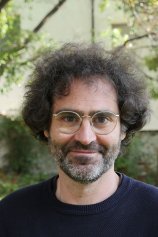Chair: Xavier Leroy
Abstract
This lecture offers a reflection on the growing role of machine learning in contemporary music creation, at the intersection of artistic intuition and mathematical formalization. Drawing on my work in computational creativity, assisted orchestration, and human-machine co-composition, I will examine how algorithmic systems can move beyond imitation (mimesis) to become agents of sensorial and cathartic transformation (katharsis).
I will explore how mathematical models—far from serving merely as tools for optimization—can structure aesthetic processes, reveal emergent forms, and open new spaces for listening and invention. The talk will highlight systems where neural architectures engage deeply with musical logics, and where symbolic and perceptual representations are brought together in a unified creative gesture.
This epistemological shift, which entrusts aspects of judgment or style to computational agents, challenges conventional notions of authorship, work, and listening. Situated between science and artistic practice, I will advocate for a vision of co-evolution between humans and machines—grounded in shared structures, emergent languages, and the unfinished power of musical creation.

